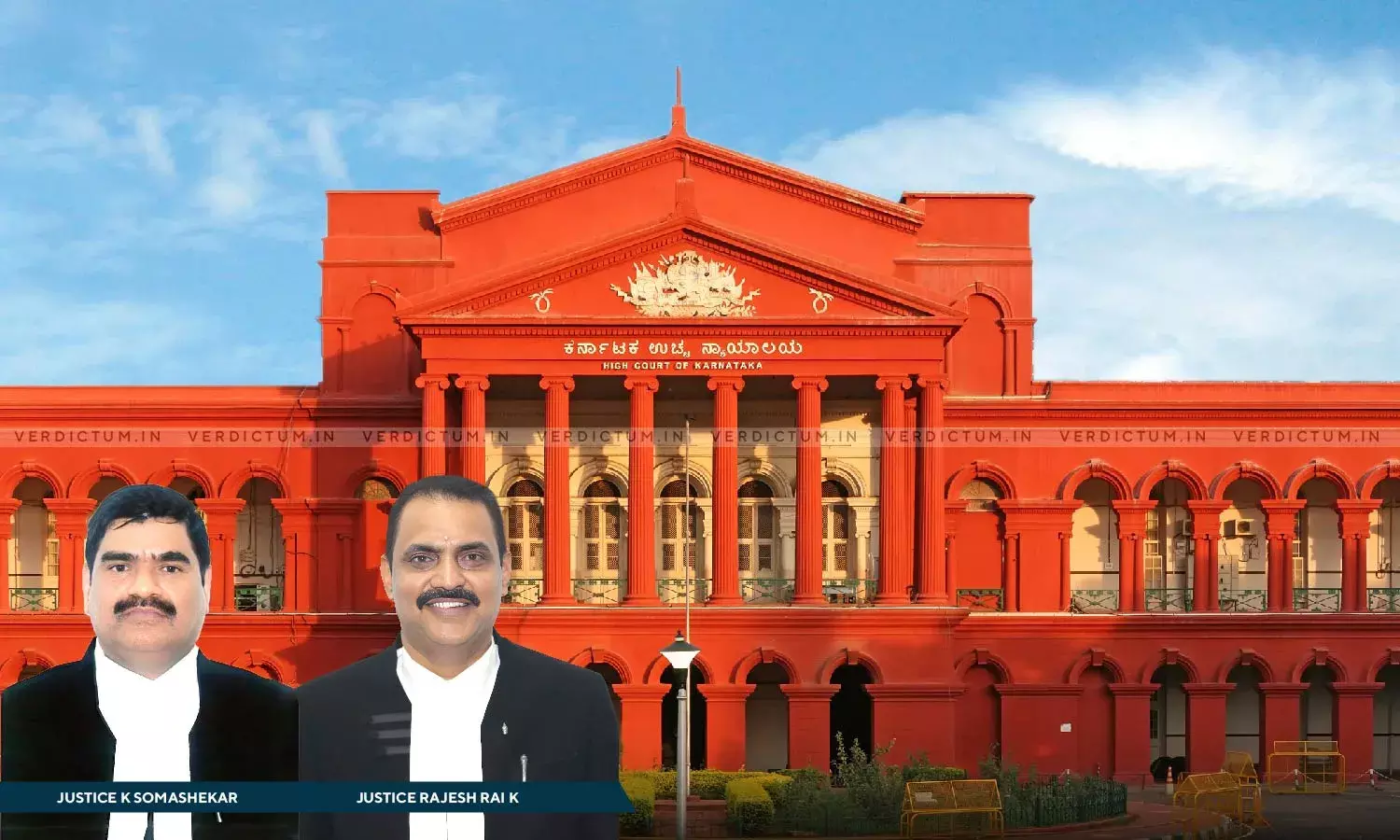Sessions Court Cannot Exercise Power To Direct Imprisonment Of Accused Till His Last Breath: Karnataka High Court
The Karnataka High Court while dealing with an appeal preferred by the convict in a murder case has held the Sessions Court cannot exercise the power to impose imprisonment on the accused till his last breath.
A Division Bench comprising Justice K. Somashekar and Justice Rajesh Rai K observed, “In such circumstances, the Sessions Court cannot exercise such power to impose imprisonment to accused No.1 till his last breath. Hence, learned Sessions Judge erred on that count. Nevertheless, the Hon'ble Apex Court in the case of Dharma Deo Yadav (supra) laid down three tests, namely, Crime test, Criminal test and Rarest rare test. So for the present case is concerned, both the crime and criminal tests have been satisfied against the accused but, rarest rare test is concerned, the prosecution failed to prove the same by leading cogent evidence that the crime was committed in a barbaric manner and hence the instant case would not fall under the category of rarest of the rare case.”
The Bench further held that the punishment awarded by the Trial Court by imposing imprisonment to the accused till his last breath has to be modified to life imprisonment instead of the last breath of his life.
Advocate Veeranna G. Tigadi appeared for the appellant/convict while Addl. SPP Vijayakumar Majage appeared for the respondent/State.
Brief Facts -
The appeals were filed by the appellant along with the other accused which were directed against the judgment of conviction passed by the Additional District and Sessions Judge for the offence punishable under Sections 302, 120(B), 201 r/w Section 34 of the Indian Penal Code (IPC). The appellant was in love with the wife of the deceased man.
When the deceased was working in a field in a village, the appellant hit him on the head with a rod and kicked him on the head. He also hit him in the chest and killed him. With the help of his brother, the appellant transported the dead body of the deceased in a goods rickshaw and buried it in vacant land. Therefore, the Sessions Court convicted the accused.
The High Court after hearing the contentions of the counsel noted, “… in our considered opinion, the learned Sessions Judge has rightly convicted accused No.1 for the charges levelled against him. … However, as far as accused No.3 is concerned, the prosecution failed to prove his guilt by leading any cogent evidence.”
The Court said that it is the settled position of law that the voluntary statement of the co-accused cannot be based on the conviction of the other accused.
“… the ownership of the said auto rickshaw was not proved and more over, there is no such evidence deposed before the Court about the shifting of the dead body by accused No.3 along with accused No.1. In such circumstances, accused No.3 cannot be convicted for the offences charged against him”, further noted the Court.
The Court directed that the appellant shall undergo life imprisonment instead of imprisonment for life i.e., till his last breath, and hence granted him time of two weeks to surrender before the trial court. However, the Court acquitted the other accused of all the charges.
Accordingly, the High Court partly allowed the appeal and modified the judgment of conviction.
Cause Title- Harish v. State of Karnataka




